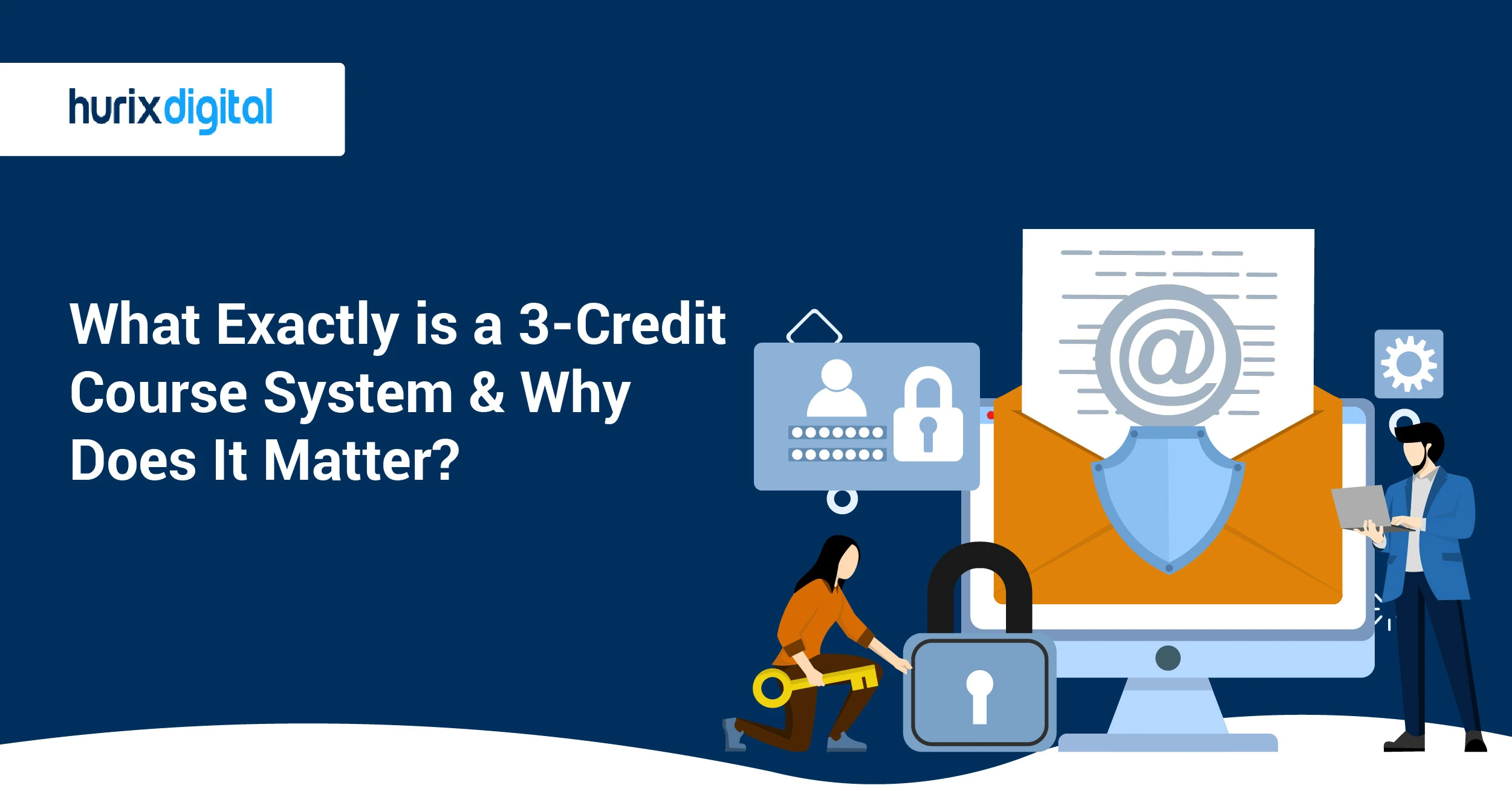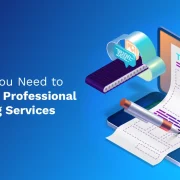
10 Best Practices for Effective Online Course Development
Summary
In this blog, you’ll discover the 10 best practices that top instructional designers swear by for creating highly effective and engaging online courses that learners can’t get enough of.
Table of Contents:
- Introduction
- Top 3 Reasons Why Online Courses are Gaining Popularity
1. Convenient Access
2. Interactive Nature
3. Economical - Top 10 Best Practices in Online Course Development
1. Begin with Putting Together a Clear Content Outline
2. Customize Your Course for Your Audience
3. Set the Course Duration
4. Make Use of Interactive Elements
5. Previous eLearning Experience
6. Check Device Compatibility
7. Make Use of Real-Life Scenarios
8. Introduce Self-Paced Learning
9. Determine Learner Preferences
10. Include Feedback and Assessments - Conclusion
Introduction
People study for many reasons. Some do it only to earn a degree, while some others do it to take the next big jump in their career. Regardless of why you choose to do it, learning brings you closer to your dreams.
Pedagogy has since long been an overly debated subject. At first, its arguments were limited to what happened in the classroom as a result of student-teacher interaction. However, thanks to the steady slew of technological advancements over the course of the last decade, education has seen a paradigm shift too. This shift is largely related to how students are choosing to study today. The phenomenon of digitalization has arguably gifted pedagogy its greatest strength, i.e., online learning.
Online courses and online course development have taken the education industry by storm. They provide everyone with an engaging means to pursue their desired course that is customized to match their aptitude.
But what is it that makes these online courses so successful? What are the instructional design planning practices, and how should course creators go about putting them in effect? To understand that, let’s learn why online courses and online course development is gaining popularity first
Top 3 Reasons Why Online Courses are Gaining Popularity
While it is evident that the greatest contributing factor in the growing popularity of online courses is the flexibility they provide, there are a few other overarching effects that make it so widely favored over traditional college courses. We shall see a few of them here.
1. Convenient Access:
Often times, people who aspire to a certain course may not have the time to take it because of their professional or personal commitments. This is where online courses are such an attractive proposition for these people as it affords them the convenience to learn from the comfort of their home.
2. Interactive Nature:
One department where online courses score heavily over their conventional counterparts is in how engaging and interactive they are. These courses make use of seminars, video and audio support and presentations, discussion boards, quizzes, and more to provide every student with a personalized learning experience that is unmatched by textbook courses.
3. Economical:
The most obvious benefit of studying online is the massive amount of time and money that students can save. They just have to pay what the course fees demand, and that’s it.
10 Best Practices in Online Course Development
In recent times, online education and online education solutions has emerged as a flexible way to study and has really come into its own, thanks to the meticulous development efforts of course creators. In the digital age, the advantages of studying online are immense and speak for themselves.
However, the thing that really sets online courses apart is their course structure and how learner-centric they are. To understand more about this, we’ll take a look here at the different factors of consideration in putting together an online course.
1. Begin with Putting Together a Clear Content Outline:
The first step in online course development is agreeing upon a comprehensive program content. Going forward without doing this, irrespective of how well-crafted the subject matter is, is not a good practice as it may lead to the overemphasis of some points and the understating of certain others.
The syllabus that you put together should serve as the blueprint for course creation. This also helps you understand your learners and their distinctive needs. Which eventually helps you in designing content that centers around providing your learners with what they need to know.
2. Customize Your Course for Your Audience:
The next step after setting a syllabus is building interactive content in accordance with the course’s blueprint. You can do this by running an audience analysis. This will let you grasp what your audience wants to learn and help you decide on the best presentation mode for each lesson.
For example, baby boomers prefer to-the-point study material in a lecture format, while millennials favor highly personalized content with lots of interactive ebooks and other kinds of learning material in the form of videos and more. Knowing what ticks for certain set of people can help you go a long way in effectively designing an online course.
3. Set the Course Duration:
Another best practice that is as equally important as the aforementioned points, the course duration. It must be set in a manner as to deliver the content is comprehensible chunks to keep learners engaged. Segment your modules into no more than 30 minutes long. This will help you set expectations in line with your learners’ attention spans.
4. Make Use of Interactive Elements:
Interactive elements or interactivities can help your learners feel a greater level of engagement and involvement with a course. This also provides you with room for experimentation.
5. Previous eLearning Experience?
While this may not seem like a key factor of consideration, it can still help you determine and segregate learning objectives on the basis of how many of the people from your audience have prior experience with elearning.
For example, people who aren’t familiar with it can find small activities like click-on tabs very engaging, while those who have had such an experience might feel the course below their expertise level.
6. Check Device Compatibility:
In the era of BYODs, where people are most comfortable using their own devices, it would bid you good as a course creator during online course development to check how certain parts of your course, like certain interactive elements, are compatible across devices. This way, developers can understand how best to include which features in a course.
7. Make Use of Real-Life Scenarios:
As per cognitive theories, any kind of new learning is possible if it has a vantage point known as a schema and facilitates easier retention of new information. Employing real-life scenarios can help your audience understand novel information in relation to familiar situations and improve the level of knowledge retention.
8. Introduce Self-Paced Learning:
The greatest benefit that technology has provided us with is flexibility. In eLearning, this can translate to voice chats, VR video lessons, asynchronous and online tuitions, webinars, and more.
These techniques can amplify the obvious advantage of online learning by virtue of letting students learn at their own pace and make online learning that much more effective.
9. Determine Learner Preferences:
During online course development, one best practice is to ascertain audience preferences for certain mediums like auditory, kinesthetic, and virtual elements.
A proper understanding of your audience’s learning preferences can enable you to conduct a harmonious conjunction of the three aforementioned factors to give your learners a good online learning experience.
10. Include Feedback and Assessments:
The most contemporary feature to employ during online course development is including feedback as a leitmotif that continuously assesses the knowledge a student has gained at different stages of the course.
You can do this by implementing a surprise quiz series, essay assignments, and more. Provide immediate feedback upon the assessment of every test so that learners are apprised of their holistic development as well.
To Conclude:
Instructional design is a skill that encapsulates the right collection, categorization, sequencing, and ascertainment of content and experiences to help students achieve an all-around learning experience.
When done right, it can make the difference between a skilled workforce and an inept one. A collaborative effort of educational institutions, it is the best tool in contemporary education’s arsenal that can help pedagogical authorities realize a true educational revolution in the coming times.
Related:
9 Reasons for the Growth of eLearning in Education
Why Should Colleges and Universities Develop eLearning Programs?
How Mobile Learning is Changing the Educational Landscape
Best eLearning Solutions for Digital Natives
How to Create and Deliver the Best K-12 Learning Solutions
Online Education Solutions & the Changing Learning Landscape

Senior Vice President
A Business Development professional with >20 years of experience with strong capability to sell new solutions and develop new markets from scratch. New Market Entry Specialist with experience working in the largest emerging markets. Exceptional experience in conceptualizing, ideating and selling new learning technologies like VR AR, etc. across multiple industry verticals.








